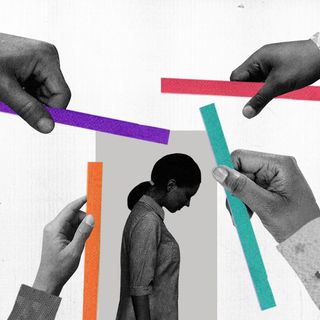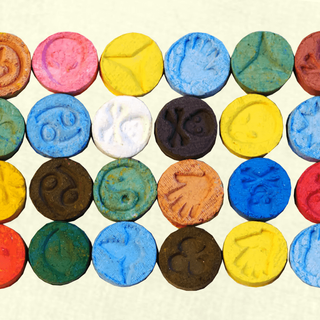Think of the word “spoon.” Say it 20 times and you’ll find a paradox. The word is familiar, but at the same time, feels distinctly strange. The more you say it — the more it permeates through your psyche — the stranger you feel about this whole combination of letters. It starts to sound foreign, like a word you never knew before.
This occurrence is not limited to words; the paradox extends to lived experiences, facts, people, places, pop culture, andour memories too. It’s what experts call the “jamais vu” phenomenon. French for “never seen,” the term references an intense, inexplicable feeling where current experiences feel unique and novel — even when we objectively realize we’ve lived through them. Ourmind instantly goes to all the people we came across, who looked familiar, and yet wecouldn’t recall having met. Or you know this end-of-world feeling that seems to hold 2021’s end in a fraught, absurd embrace? Yes, it’s not new. We’ve lived through this reality before.
“…it often involves a sense of eeriness and the observer’s impression of seeing the situation for the first time, despite rationally knowing that he or she has been in the situation before.
<a href="https://link.springer.com/referenceworkentry/10.1007%2F978-0-387-79948-3_1167" target="_blank" rel="noreferrer noopener">Springer’s Encyclopedia of Clinical Neuropsychology</a> Jamais vu, in its simplest iteration, isunderstood to be the opposite of “déjà vu,” which is French for “already seen.” Someone who has never lived in, say, the fictional planet of Arrakis (set in the Dune universe) has an overwhelming feeling they have been there before — that’s déjà vu. On the contrary, someone who already lives in Arrakis and finds everything around them strange, they are experiencing jamais vu. In 2019, the Korean band BTS even released a song titled “Jamais Vu,” the lyrics of which went something like this: “I’m okay but I’m not okay / I told myself I’m used to it / But I’m in pain like it’s the first time.”
The phenomenon cuts to the heart of a question: How do we differentiate the new and strange from the old and familiar?
Unlike déjà vu, jamais vu is used more in neuroscience to refer to conditions associated with epilepsy, aphasia, or amnesia. Donald Tuzin, a professor and chairman of the Department of Anthropology, UC San Diego, told L.A. Times that jamais vu is often used in psychiatry and psychoanalysis to refer, for example, “to a common form of dream experience — as when the dreamer knows he has returned to his childhood home, but is faintly disturbed that its interior resembles that of, say, a foundry of some bygone era.”
Related on The Swaddle:
It Feels Like April 2020 All Over Again. This ‘Been There, Done That’ Vibe Is Called Déjà Vécu
In 2006, researcher Chris Moulin fromthe Leeds University asked volunteers to write “door” 30 times in 60 seconds; 68% of people ended up doubting if “door” was ever a real word at the end of the process, displaying signs of jamais vu. Moulin went on to argue similar brain fatigue is also observed in some schizophrenia patients when they feel a familiar person has been replaced by an impostor. They could be suffering from “chronic jamais vu.”
Jamais vu can play out in multiple ways; in the form of “dysmnesic symptoms, distortions of memory”; even temporal disorientation, a dreamy state, a flashback.
Interestingly, jamais vu was first identified, some 100 years ago, as “gentleman’s intrigue,” Moulin said. The origin of the name is still a mystery. The phenomenon seems to be pervasive beyond medical applications as well. Other ways in which people could be feeling jamais vu maybe when they look at a face for too long and it begins to look strange. Or when you wake up in the morning and the person next to you feels like a stranger.
In a 2001 study, experts found how jamais vu applies to students. Remember when a teacher would ask a class if XYZ topic was covered earlier, and would receive blank stares in response? This may not only be a case of absent-mindedness or willful ignorance, but students may actually not remember having learned something.
“Jamais vu may be more common than [it is] reported, but is not noticed as readily as is déjà vu,” researchers noted in 2010. “Perhaps when subjective unfamiliarity contrasts with objective familiarity, it is not as attention-grabbing as déjà vu or it can be dismissed more easily.”
Research around jamais vu still remains thin, irrespective of how viscerally people may experience it. Even now, we know we have been here before, but why does the despair and foreboding all feel so unfamiliar? At least we know it’s jamais vu — all over again.




